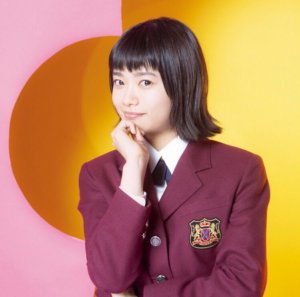Cette critique peut contenir des spoilers
"In the beginning, women were the sun..."
"Toto Nee-chan" is my 18th asadora [I can't believe I'm so close to watching twenty of these dramas lol.] and it quickly became one of my favorites that I've watched thus far. Takahata Mitsuki truly left a deep impression on me with her role as the heroine, Tsuneko. I really liked her in "Gochisosan" before but she really knocks it out of the park with this one. Her smile lights up the room and her subtle line deliveries tell you exactly how Tsuneko is feeling. I was impressed with Mitsuki's acting and how well the writer understood the character that they were writing.
Nishijima Hidetoshi plays Tsuneko's father and, despite only appearing in about six episodes, makes yet another unforgettable impression. Before dying of tuberculosis, he asks Tsuneko to take his place in the family. She agrees and thus becomes "Toto Nee-chan." I appreciate that the finale, in which appears via a dream, addresses what a heavy burden this is. However, I also understand why he would ask this of her, considering the patriarchal society at the time. Thankfully, the unhealthy part of only lasts until Tsuneko's younger sisters are grown up. She then realizes that the entire family can support each other while she can still be the "head of the family" technically. At the end of the day, despite being a heavy burden, I think the promise gave Tsuneko a true purpose in life.
Tsuneko's sisters are Mariko (Sagara Itsuki) and Yoshiko (Sugisaki Hana & Irei Himena). These two are given strong characterizations and feel like co-leads with Mitsuki most of the time. Their mother is played by Kimura Tae. Another strong performance. I especially liked his storyline with her estranged mother Takiko (Daichi Mao). Unfortunately, by the end of the asadora, Tsuneko's sisters and mother feel somewhat pushed by the wayside. This is understandable since their storylines were mostly finished, though just a bit disappointing.
Besides Tsuneko, I think the second most memorable character is Hanayama-san (Karasawa Toshiaki). [I first saw Karasawa in the 1988 asadora "Jun-chan no Ouenka" and his acting skill has become so good since.] Tsuneko first meets Hanayama briefly before the war. They meet again and he agrees to become the chief editor of the magazine she's starting with her sisters. Hanayama seems like one of those typical mentor characters in asadoras. However, I feel their relationship goes deeper than that. To me, Tsuneko and Hanayama are a good example of how "soulmates" don't have to be romantic partners. I also enjoyed Hanayama's uncompromising nature, which is a good foil to Tsuneko who initially wants to please everyone.
To address the elephant in the room, Tsuneko doesn't get married or have children. She does technically have a love interest, Hoshino-san (Sakaguchi Kentaro). [He was also amazing in "Okaeri Mone."] He proposes her just before the war, but she turns him down to stay with her family. They meet again fifteen years later and seemingly have another chance. However, the timing isn't right and Hoshino makes the best decision for his children. Their romance is very pure and heartbreaking. I would have loved for their relationship to have worked out, but I find it realistic and I respect the decision to have an asadora heroine not get married for once.
I also loved the music for "Toto Nee-chan," particularly the theme song "Hanataba o Kimi ni" by Hikaru Utada. Her songs for dramas always seem to capture the essence of the series. I could listen to this song for hours and I never got tired of it once.
To close out this review: I absolutely loved this asadora. The writing was superb from start to finish with an endless amount of impressive characters and moments. The writer did such a good job closing out the drama with the last few weeks. The finale was also one of the best I've seen from an asadora so far. It was infinitely satisfying and I know I'll go back to watch it again very soon. An A+ asadora that I would recommend to everyone.
Nishijima Hidetoshi plays Tsuneko's father and, despite only appearing in about six episodes, makes yet another unforgettable impression. Before dying of tuberculosis, he asks Tsuneko to take his place in the family. She agrees and thus becomes "Toto Nee-chan." I appreciate that the finale, in which appears via a dream, addresses what a heavy burden this is. However, I also understand why he would ask this of her, considering the patriarchal society at the time. Thankfully, the unhealthy part of only lasts until Tsuneko's younger sisters are grown up. She then realizes that the entire family can support each other while she can still be the "head of the family" technically. At the end of the day, despite being a heavy burden, I think the promise gave Tsuneko a true purpose in life.
Tsuneko's sisters are Mariko (Sagara Itsuki) and Yoshiko (Sugisaki Hana & Irei Himena). These two are given strong characterizations and feel like co-leads with Mitsuki most of the time. Their mother is played by Kimura Tae. Another strong performance. I especially liked his storyline with her estranged mother Takiko (Daichi Mao). Unfortunately, by the end of the asadora, Tsuneko's sisters and mother feel somewhat pushed by the wayside. This is understandable since their storylines were mostly finished, though just a bit disappointing.
Besides Tsuneko, I think the second most memorable character is Hanayama-san (Karasawa Toshiaki). [I first saw Karasawa in the 1988 asadora "Jun-chan no Ouenka" and his acting skill has become so good since.] Tsuneko first meets Hanayama briefly before the war. They meet again and he agrees to become the chief editor of the magazine she's starting with her sisters. Hanayama seems like one of those typical mentor characters in asadoras. However, I feel their relationship goes deeper than that. To me, Tsuneko and Hanayama are a good example of how "soulmates" don't have to be romantic partners. I also enjoyed Hanayama's uncompromising nature, which is a good foil to Tsuneko who initially wants to please everyone.
To address the elephant in the room, Tsuneko doesn't get married or have children. She does technically have a love interest, Hoshino-san (Sakaguchi Kentaro). [He was also amazing in "Okaeri Mone."] He proposes her just before the war, but she turns him down to stay with her family. They meet again fifteen years later and seemingly have another chance. However, the timing isn't right and Hoshino makes the best decision for his children. Their romance is very pure and heartbreaking. I would have loved for their relationship to have worked out, but I find it realistic and I respect the decision to have an asadora heroine not get married for once.
I also loved the music for "Toto Nee-chan," particularly the theme song "Hanataba o Kimi ni" by Hikaru Utada. Her songs for dramas always seem to capture the essence of the series. I could listen to this song for hours and I never got tired of it once.
To close out this review: I absolutely loved this asadora. The writing was superb from start to finish with an endless amount of impressive characters and moments. The writer did such a good job closing out the drama with the last few weeks. The finale was also one of the best I've seen from an asadora so far. It was infinitely satisfying and I know I'll go back to watch it again very soon. An A+ asadora that I would recommend to everyone.
Cet avis était-il utile?

























